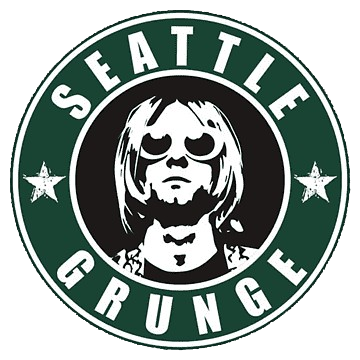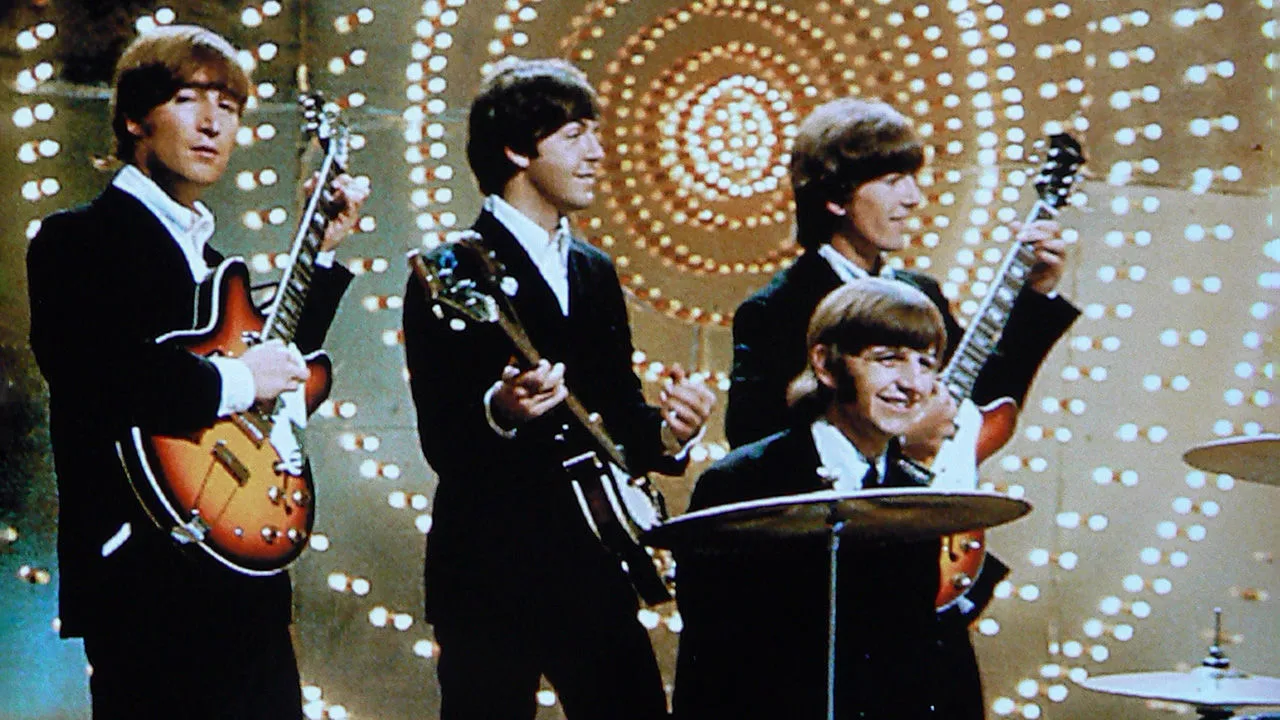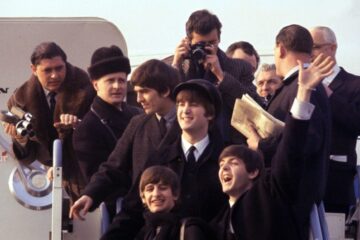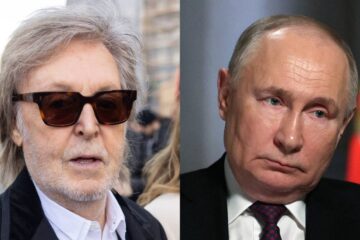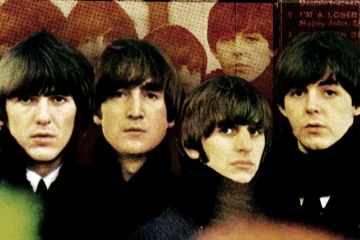On New Year’s Day 1962, a 26-year-old Decca producer battled his way through snow and a hangover to the record label’s studio in West Hampstead. A relative novice at the time, Smith was about to make a test recording of a young band he’d seen three weeks earlier at the Cavern Club in Liverpool. A band calling themselves The Silver Beatles.
“I thought they were wonderful on stage,” he later reflected in an interview with the Independent, and requested that the band play most of their live set in the studio, displaying the full range of their repertoire. They duly prepared a set of 15 different songs, three times as many as an auditioning artist would usually play.
The group had never been in a recording studio before and were incredibly nervous. They’d also had trouble getting to the audition, with treacherous weather conditions slowing them down on the route to London from Liverpool. And when they entered Decca Studio 2, it wasn’t much warmer. To make matters worse, the red light in the room to signal the tape was rolling only added to their nerves and put them off their playing.
At the end of the recording session, The Beatles listened back to the tapes, and 21-year-old John Lennon commented that their performance didn’t sound natural. Smith told them the label would be in touch and waved them out of the studio. He later ran into them again in central London, whereupon the future Fab Four greeted him mockingly with a “two-finger salute”.
Little did they know then that the Decca producer was about to reject them after hearing their recordings because he now felt they “weren’t very good”. He was particularly unimpressed with the band’s drummer, Pete Best. “Pete was a very average drummer and didn’t keep good time,” he remarked in hindsight. “If Decca was to sign The Beatles, we wouldn’t have used Pete Best on the records.” Ironically, Decca would go on to sign Best just a year later without The Beatles, as drummer for fellow-Merseybeat group Lee Curtis and the All-Stars.
What really disappointed Smith about the session wasn’t just Best’s drumming or the odd mistake made by the other Beatles on account of their nerves. It was the lack of vitality in their performance, which he chalked up to some rather unusual song choices for the audition.
So, who chose the songs?
Taking Smith’s request for a wide repertoire of tracks a little too far, The Beatles’ manager Brian Epstein personally selected and ordered the setlist of 15 songs they’d play at Decca. Smith was especially bemused by the more traditional vocal pop numbers they played, like ‘The Sheik of Araby’, ‘Besame Mucho’ and ‘September in the Rain’, which were aimed at an older audience and had nothing to do with the raucous atmosphere of their Cavern performances.
“I should have trusted my instincts,” he later lamented, referring to the feeling he had on first seeing The Beatles in Liverpool. On the basis of their studio audition, though, he simply couldn’t give Decca the green light to sign them, particularly when the label’s A&R chief Dick Rowe was placing them in direct competition with local London band Brian Poole & the Tremeloes.
“The Beatles weren’t good, Mr Epstein,” Rowe told the group’s manager when he tried to argue their case. “We know these things.”
A few months later, the group returned to London for another test session, this time with Parlophone producer George Martin. They were tighter as a band, sharper in the session, and had three previously unheard original songs to offer: ‘PS I Love You’, ‘Ask Me Why’ and ‘Love Me Do’. Martin wasn’t blown away but felt the band had personality. He recommended the dismissal of Best as drummer, though, and John, Paul and George obliged.
With Ringo Starr behind the kit, by August 1962, The Beatles were on their way. They were about to make a mockery of Rowe’s infamous claim to Epstein, “Groups of guitarists are on their way out.” Smith, at least, was more sanguine about Decca’s rejection of The Beatles. “I think that we got to them too early,” he concluded. It might have taken a little longer than Epstein initially hoped, but with the right songs, the right drummer and the right experience, his band would soon conquer the world.
